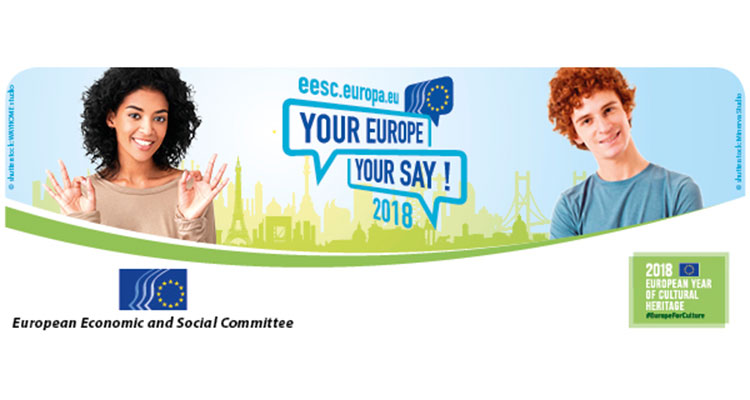On 13 of February the Gimnazija “Miloš Savković” in Arandjelovac will welcome Roman Haken member of the European Economic and Social Committee, to prepare for “Your Europe, Your Say“ (YEYS), the youth assembly which will take place in Brussels on 15-16 March 2018.
Thirty-three schools from across Europe, 28 EU Member States and five candidate countries, will come to Brussels and tell European institutions just what role they see culture playing in Europe’s future. They will brainstorm, debate and vote on three proposals which European institutions will factor into their policy making.
Roman Haken will work with the students in advance of the March meeting to prepare answers to some key questions concerning the future of European culture:
- What is European culture: is it just the sum of national traditions or are there common values that make us all Europeans?
- What is the role of culture and cultural exchanges in students’ lives?
- What can the European Union do to promote culture (cinema, music, dance, literature, theatre, etc.) and better protect cultural heritage sites?
- What role could culture play in the economic rebirth of Europe’s regions and cities?
- How can this rebirth give new opportunities to young people in terms of new jobs?
Called “Your Europe, Your Say!” (YEYS), the event is organised by the European Economic and Social Committee (EESC), the voice of civil society at European level, and is the Committee’s flagship event for young people. Through this initiative, the EESC is making sure that the views, experiences and ideas of the younger generation are taken on board in EU policy making.
Roman Haken has been a member of the EESC since 2006 and he is active within the Group of Various interests.
Further details about YEYS2018 are available on the event’s official page and in last year’s video here.
The European Economic and Social Committee represents the various economic and social components of organised civil society. It is an institutional consultative body established by the 1957 Treaty of Rome. Its consultative role enables its members, and hence the organisations they represent, to participate in the EU decision-making process. The Committee has 350 members from across Europe, who are appointed by the Council of the European Union.




